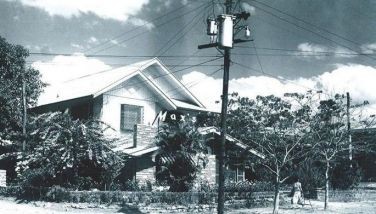Premature

When an owner/ developer fails to develop a subdivision or condominium project, the buyer may choose either: (1) to continue with the contract but suspend payments until the developer complies with its obligation to finish the project; or (2) to cancel the contract and demand a refund of all payments made excluding delinquency interests (P.D. 957 Section 23). But when is there a failure to develop as to give rise to a cause of action for refund? This is answered in this case of a garments manufacturer (GG).
GG offered to purchase the 38th floor penthouse unit and 16 parking slots for 12 cars in the office condominium project of WCP Inc., the owner/developer of said project known as Antel Global Corporate Center, for the discounted, pre-selling price of P89.6 million. After GG paid the P500,000 reservation fee, the parties signed a Reservation Agreement dated May 15, 1996 (Agreement) providing for the schedule of payments, including the monthly installments on the down payment and on the balance of the purchase price all covered by postdated checks (PDCs). The Agreement also provided that the contract to sell pertaining to the entire Penthouse would be executed upon the payment of 30% of the total purchase price. It also specified that failure of the buyer to pay any installments on the stipulated date would give WCP the right either to charge 3% interest per month on all the unpaid receivables, or (2) rescind and cancel the Agreement and forfeit the reservation fee and other payments made. At that time WCP had no license to sell (L/S) yet because it was issued only in August 1996 where the date of the completion of the project was fixed in August 1998.
From May to December 1996 GG timely paid the installments equivalent to 21% of the total contract price. But on January 30, 1997 GG requested the return of the outstanding PDCs it previously delivered because it intended to replace them with new ones from its new bank. WCP acceded but suggested the execution of a new Agreement to reflect the new replacement checks but retaining all the other terms. GG did not object but requested that WCP defer the deposit of the replacement checks for 90 days. WCP rejected the request and also demanded payment of the overdue January installment to avoid penalties.
So on March 5, 1997, GG delivered the replacement checks and paid the January 1997 installment. WCP in turn issued the second Agreement and a provisional contract to sell where it is stated that the project would be ready for turnover on or before December 15, 1998. GG did not sign the Agreement and instead sent a letter to WCP requesting that the check dated April 24, 1997 be deposited on May 15, 1997 as it was experiencing financial difficulties. When WCP rejected the request, GG sent another letter informing WCP that the Agreement was incomplete because it did not expressly provide for the time of completion of the unit. WCP countered that the said date was already specified in the contract to sell as December 15, 1998. Thus WCP insisted that GG pay its overdue account.
On June 10, 1997 however GG already filed a complaint with the HLURB claiming refund of the installment payment because it was dissatisfied with the completion date found in the contract to sell.
In answer, WCP averred among others that GG’s dissatisfaction with the expected date of completion of the unit as indicated in the contract to sell is not a valid and sufficient ground for refund because a refund is justified only in cases where the owner/developer fails to develop the project within the specified period of time under P.D. 957, which period has not yet arrived. Was WCP correct?
Yes. A buyer’s cause of action against a developer for failure to develop ripens only when the developer fails to complete the project on the lapse of the completion period stated in the sale contract or in the developer’s license to sell. Even if the power to rescind obligations is implied in reciprocal ones in case one of the obligor should not comply with its obligation (Article 1191 Civil Code), no reason still exist in this case for GG to rescind the contract. Under the Agreement, WCP’s obligation was to finish the project and turn over the purchased units to GG on or before the completion date. Notably, at the time GG filed its complaint on June 10, 1997, the agreed completion date of December 15, 1998 or even August 1998, the completion date appearing in WCP’s first License to Sell, was still a long way off. In other words, when GG filed its complaint, WCP had not yet breach its obligation. So rescission under this provision of the Civil Code is premature. This is true even under P.D. 957 because at the time GG filed its complaint against WCP, the Antel Global Corporate Center was still in the course of development and none of those projected completion dates had arrived. Hence any complaint for refund was premature. Accordingly the complaint of GG should be dismissed (G.G. Sportswear Mfg. Corp. vs. World Class Properties Inc. G.R. 182720, March 2, 2010).
* * *
Note: Books containing compilation of my articles on Labor Law and Criminal Law (Vols. I and II) are now available. Call Tel. 7249445.
* * *
E-mail at: jcson@pldtdsl.net
- Latest
- Trending

























